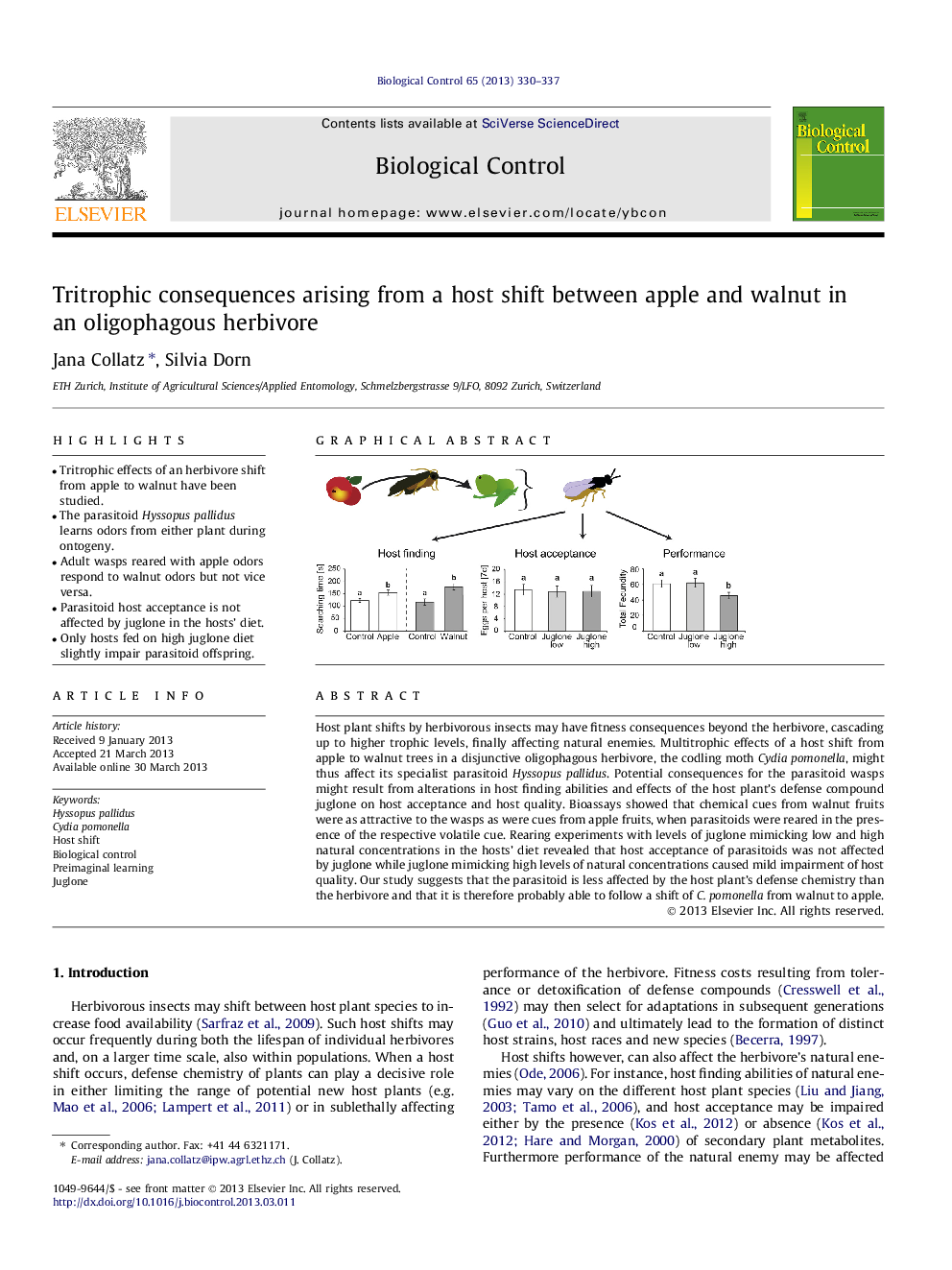| Article ID | Journal | Published Year | Pages | File Type |
|---|---|---|---|---|
| 4504029 | Biological Control | 2013 | 8 Pages |
•Tritrophic effects of an herbivore shift from apple to walnut have been studied.•The parasitoid Hyssopus pallidus learns odors from either plant during ontogeny.•Adult wasps reared with apple odors respond to walnut odors but not vice versa.•Parasitoid host acceptance is not affected by juglone in the hosts’ diet.•Only hosts fed on high juglone diet slightly impair parasitoid offspring.
Host plant shifts by herbivorous insects may have fitness consequences beyond the herbivore, cascading up to higher trophic levels, finally affecting natural enemies. Multitrophic effects of a host shift from apple to walnut trees in a disjunctive oligophagous herbivore, the codling moth Cydia pomonella, might thus affect its specialist parasitoid Hyssopus pallidus. Potential consequences for the parasitoid wasps might result from alterations in host finding abilities and effects of the host plant’s defense compound juglone on host acceptance and host quality. Bioassays showed that chemical cues from walnut fruits were as attractive to the wasps as were cues from apple fruits, when parasitoids were reared in the presence of the respective volatile cue. Rearing experiments with levels of juglone mimicking low and high natural concentrations in the hosts’ diet revealed that host acceptance of parasitoids was not affected by juglone while juglone mimicking high levels of natural concentrations caused mild impairment of host quality. Our study suggests that the parasitoid is less affected by the host plant’s defense chemistry than the herbivore and that it is therefore probably able to follow a shift of C. pomonella from walnut to apple.
Graphical abstractFigure optionsDownload full-size imageDownload as PowerPoint slide
